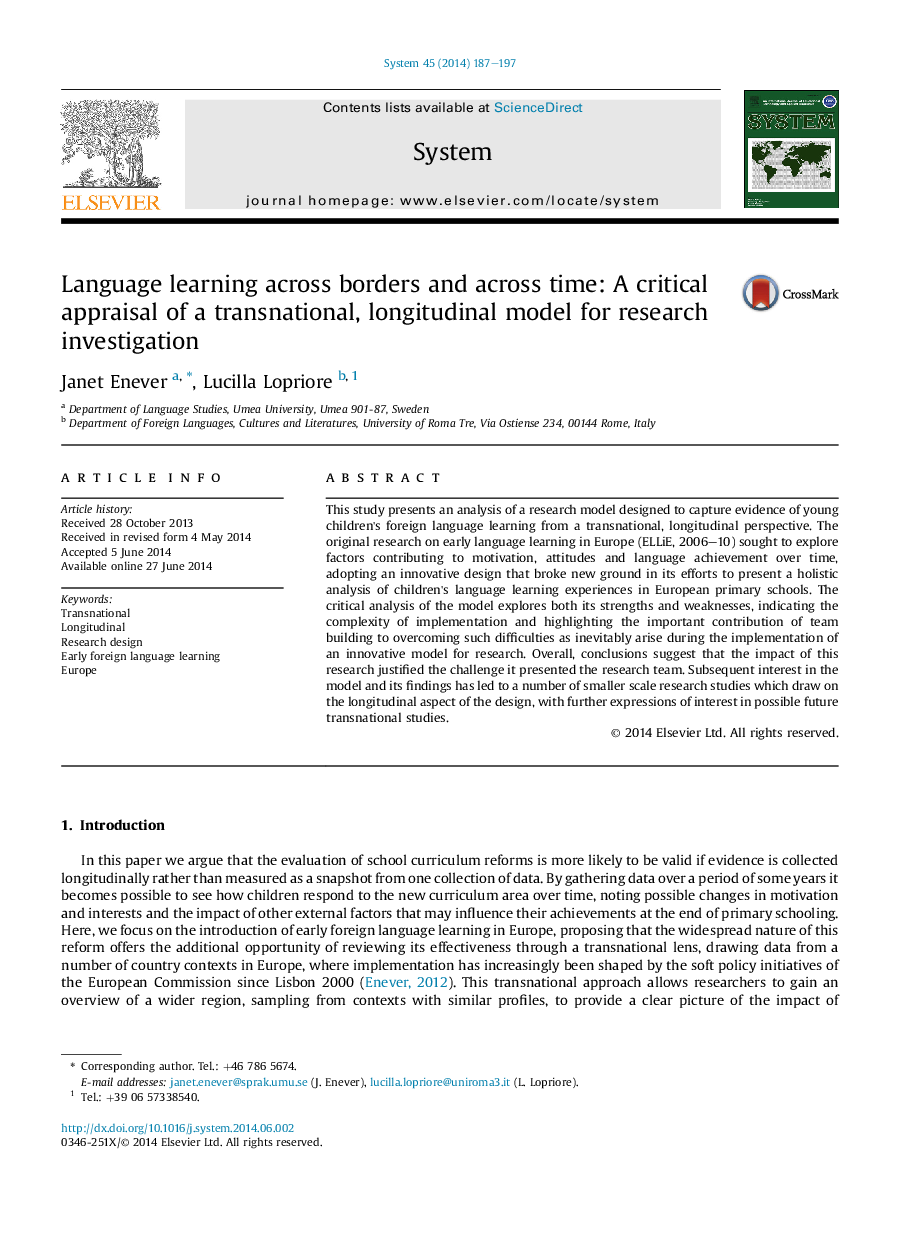| Article ID | Journal | Published Year | Pages | File Type |
|---|---|---|---|---|
| 373344 | System | 2014 | 11 Pages |
This study presents an analysis of a research model designed to capture evidence of young children's foreign language learning from a transnational, longitudinal perspective. The original research on early language learning in Europe (ELLiE, 2006–10) sought to explore factors contributing to motivation, attitudes and language achievement over time, adopting an innovative design that broke new ground in its efforts to present a holistic analysis of children's language learning experiences in European primary schools. The critical analysis of the model explores both its strengths and weaknesses, indicating the complexity of implementation and highlighting the important contribution of team building to overcoming such difficulties as inevitably arise during the implementation of an innovative model for research. Overall, conclusions suggest that the impact of this research justified the challenge it presented the research team. Subsequent interest in the model and its findings has led to a number of smaller scale research studies which draw on the longitudinal aspect of the design, with further expressions of interest in possible future transnational studies.
